WATERVILLE — Roger Deakins is a man who stands out. The 68-year old Deakins stood taller than most in the crowd around him at the Grand Central Cafe Monday afternoon, and the English accent is a sure giveaway. But it’s Deakins’ resume that really sets him apart.
That’s because Deakins has been nominated for 13 Academy Awards over his career as a cinematographer on many well-known films.
Deakins, who was in Waterville to be honored for his career by the Maine International Film Festival, has been the cinematographer on 12 different Coen Brothers movies, including “Fargo,” “The Big Lebowski,” and 2007’s “No Country for Old Men,” which won the Academy Award for Best Picture. He’s also worked on “The Shawshank Redemption,” the James Bond film “Skyfall,” and was cinematographer for the upcoming “Blade Runner 2049.”
Deakins received the inaugural Karl Struss Legacy Award for Distinguished Achievement in Cinematography from MIFF Monday night, with the presentation coming after a screening of the 2013 film “Prisoners,” which Deakins worked on. The award is named for Karl Struss, winner of the first Oscar for cinematography for the 1927 black and white film “Sunrise.”
Earlier in the day, Deakins was at Railroad Square Cinema, where he took part in a question and answer session after a screening of “The Assassination of Jesse James by the Coward Robert Ford,” which he worked on in 2017. In addition to such sessions with students, Deakins also has a website where people can ask him questions. Many times, he said, they are students trying to figure out how to get started in the film industry.
“I like doing that,” Deakins said just before the session.
Cinematography is the science or art of motion-picture photography. Deakins told the audience at the cinema that much of his work is creating a sense of geography and space on motion picture sets, often with lights and camera work. He said that he’s always enjoyed figuring things out and being able to make due with very little, which he applies to his work.
When asked by a member of the audience if he thinks the way he works with a film’s director is different now than it used to be, Deakins said he didn’t think so. Other than the fact he’s more experienced than he used to be, he said that overall the directors he’s worked with have all been very accommodating. In addition to Ethan and Joel Coen, Deakins has worked with other big names like Sam Mendes, M. Night Shyamalan, and Dennis Villeneuve, who directed films such as “Prisoners” and “Sicario.”
Deakins also serves as a visual consultant on films. He’s done that on a number of animated projects, such as the “How to Train Your Dragons” films and Pixar’s “WALL-E.” Deakins told the audience that with “WALL-E” his involvement was centered around the opening sequence, and helping the filmmakers make an animated film seem more like a live action one. He said he gave a seminar at Pixar about how a live action set works.
“My involvement was really the first 20 minutes of the film,” he said.
In an interview at a nearby restaurant, Deakins said it was very flattering to be honored by MIFF with the Struss award, especially since students were involved with the question and answer session. He also met with members of the public at the cafe.
“It’s just nice meeting people so enthusiastic about movies,” he said.
While he said the honor was very nice, awards are not what the job is about.
Deakins said his best advice to younger people aspiring to be cinematographers was to simply “be yourself.”
“Don’t try to be anybody you’re not,” he said.
Deakins said this was the first time he had visited Maine, which is the setting for “The Shawshank Redemption,” though the movie was filmed in Ohio. He said he was enjoying his trip to Maine, and that it reminded him of his home on the coast in England. He pointed out that establishing a sense of place and geography in a film is dependent on the script, and while there is usually a location manager who scouts out possible spots for the set, he said in the past he has driven around locations looking for inspiration for a set. He said cinematography is an organic process in which a person is always learning, and that there’s always a new challenge.
“That’s part of the excitement, really,” he said.
Alan Sanborn, who is the manager at Railroad Square Cinema, said it was great to have someone like Deakins come to Waterville to be honored. He said when he shook Deakins’ hand earlier, he immediately thought of all the other notable hands Deakins has shaken. He said there was going to be a highlight reel of some of Deakins’ work that would play before the award presentation, and he had seen the reel already.
“It was so beautiful,” Sanborn said.
Colin Ellis — 861-9253
cellis@centralmaine.com
Twitter: @colinoellis
Send questions/comments to the editors.


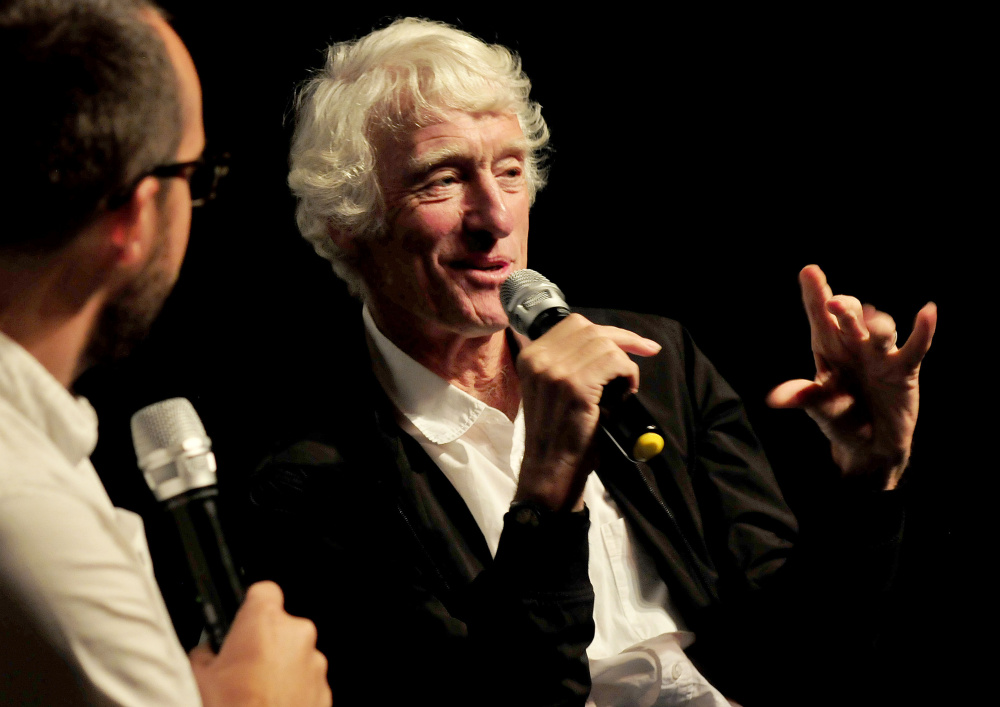
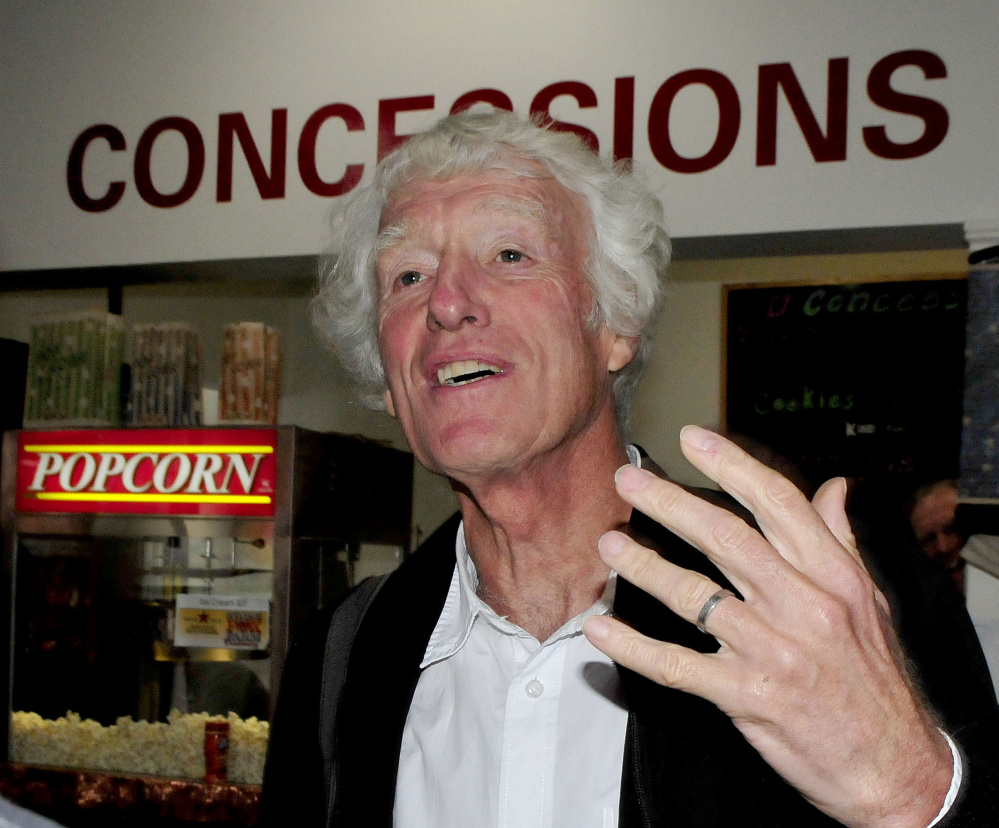
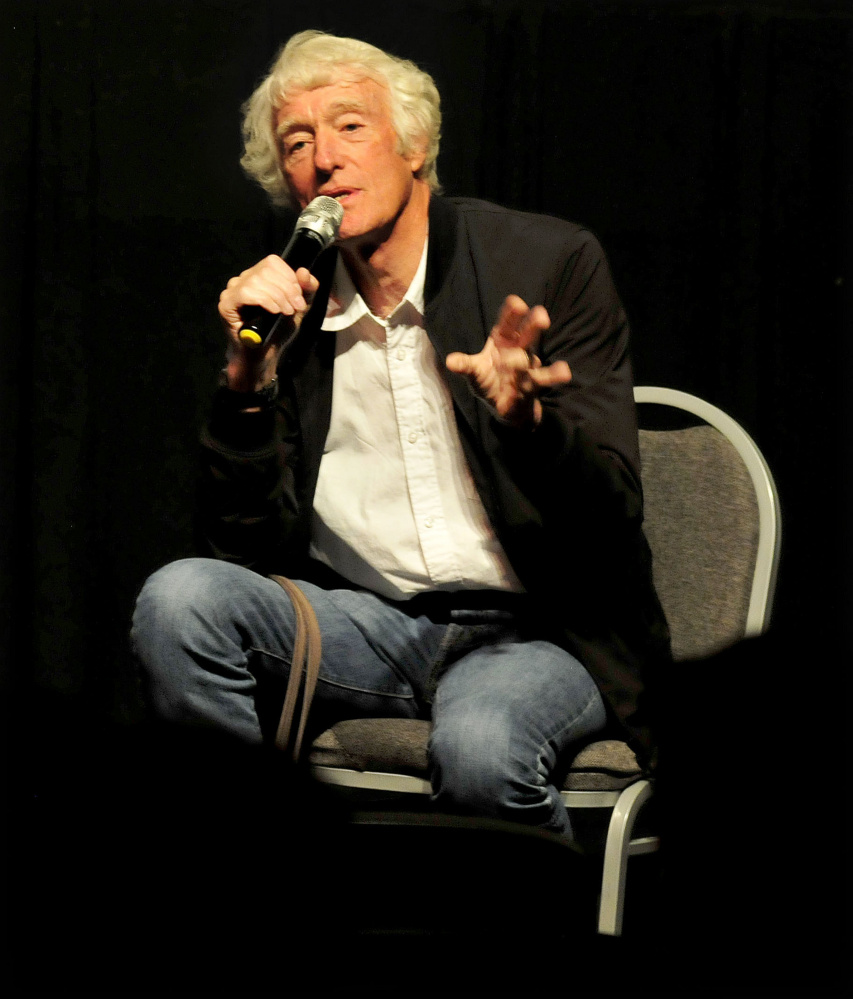
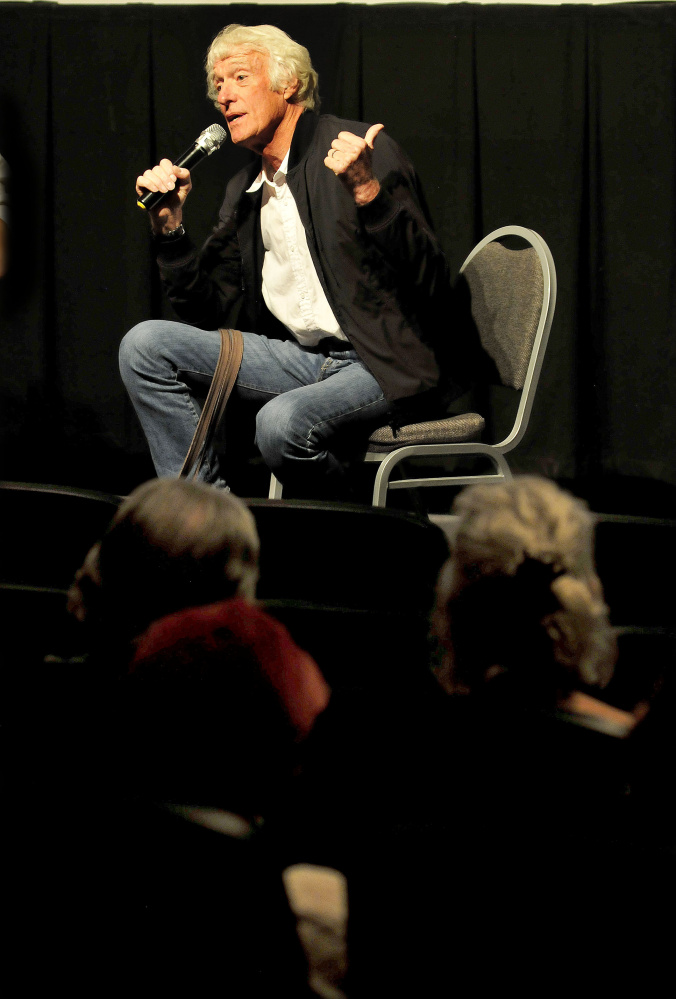
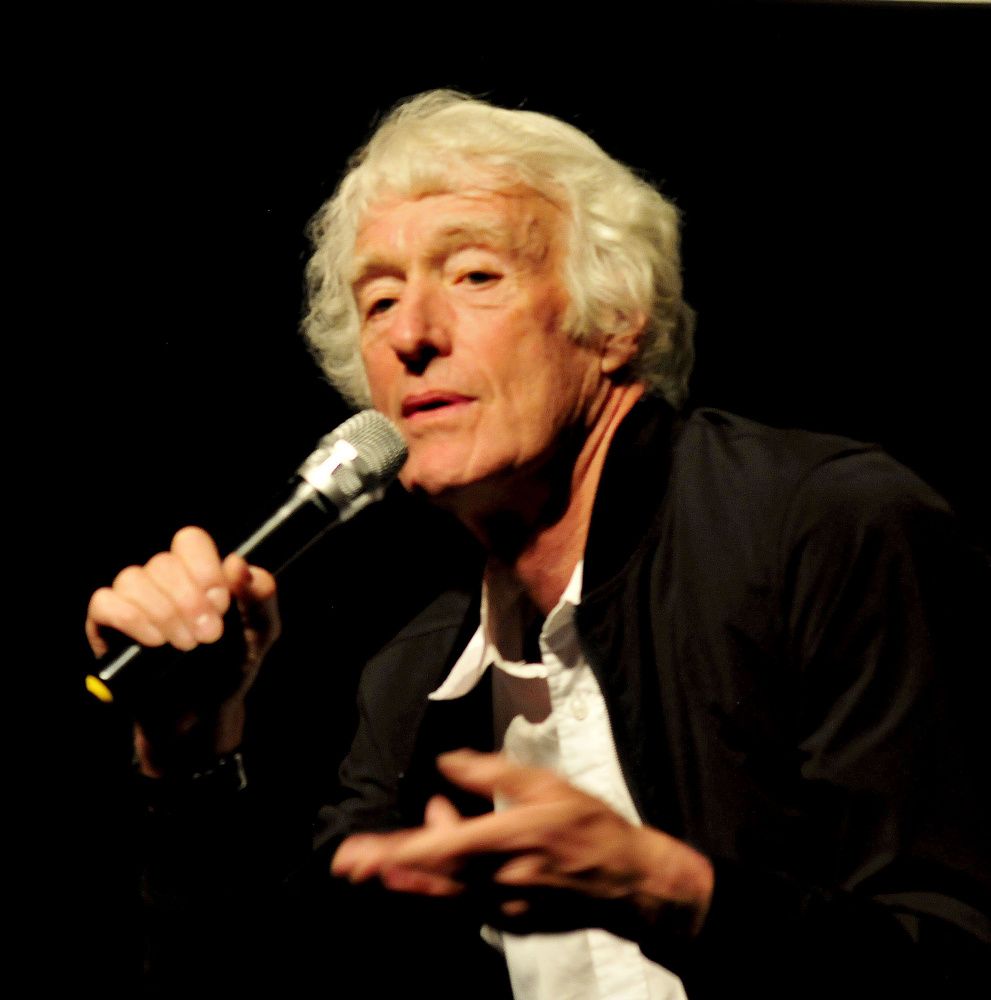
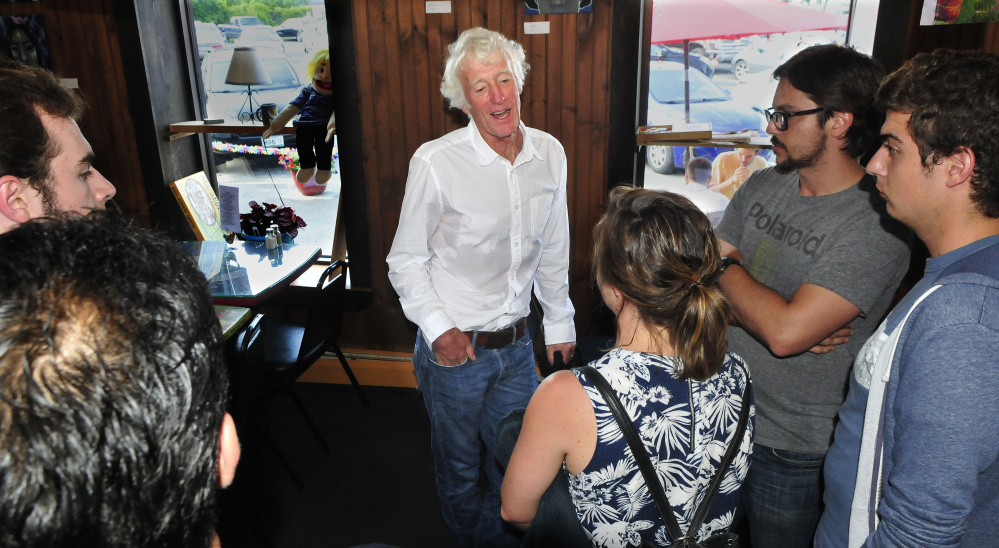
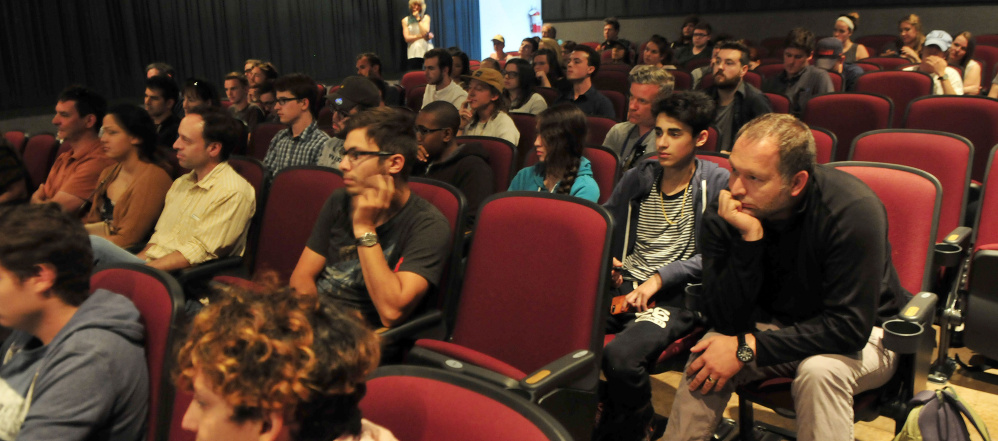

Comments are no longer available on this story